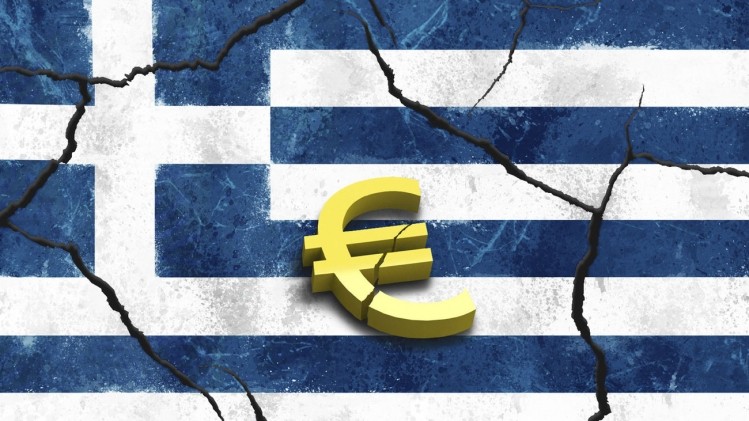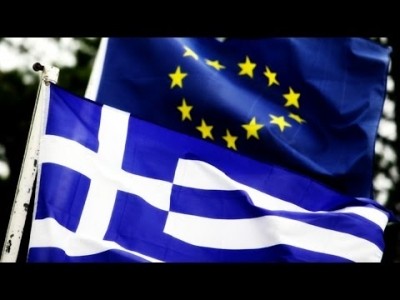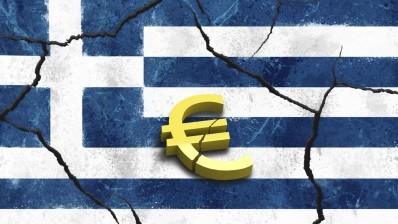What Greek ‘no’ vote means for food manufacturers

Greek Prime Minister Alexis Tsipras said the Greeks made a “brave choice” in rejecting the latest international funding package, with 61.3% voting ‘no’ to continued austerity measures and 38.7% ‘yes’ to accept the package with the renewed spending cuts it entailed.
Financial specialist SmartCurrencyBusiness.com warned the result could take a severe toll on UK food and drink exports to Eurozone countries. “The Greek ‘no’ vote, which rejects the bailout conditions offered by creditors, increases the possibility of Greece’s exit from the Eurozone,” the firm’s director Carl Hasty told FoodManufacture.co.uk.
‘Priced out of Eurozone markets’
“Should the exit happen, UK food and drink exporters can expect more market volatility. In the case of euro weakness, UK food and drink exporters could find themselves priced out of eurozone markets. UK exporters will also face greater uncertainty if Greece ends up issuing its own currency.”
A significantly weaker euro was expected to strengthen sterling, making British food and drink exports proportionally more expensive in key EU export markets. Read about Greek food and drink imports and exports with the UK in the box below.
As Greek officials prepared to resume talks with its creditors – including the International Monetary Fund (IMF) and the European Central bank, Hasty said manufacturers could offset the uncertainties following the no vote by currency management.
‘Exporters can protect themselves’
“Exporters can protect themselves by looking at different currency strategies to mitigate risk and minimise losses from unfavourable currency fluctuations,” he said.
Greek threat
“In the case of euro weakness, UK food and drink exporters could find themselves priced out of eurozone markets. UK exporters will also face greater uncertainty if Greece ends up issuing its own currency.”
- Carl Hasty, currency specialist
European officials highlighted fears yesterday (July 5) that the decisive ‘no’ vote could result in Greece being ejected from the eurozone. The value of the eurozone fell across the board in Asian markets in early trading today Monday (July 6).The euro fell by 0.5% against the pound and 0.4% against the dollar.
Bookmaker William Hill is now refusing to take bets on whether not Greece will leave the eurozone by 2016.
Greek finance minister Yanis Varoufakis resigned after the vote. Varoufakis who slammed the IMF’s handling of his country’s currency crisis as “criminal”, said some of Greece’s EU “partners” would welcome his departure.
Commentating on his blog Varoufakis pledged: “I shall wear the creditors’ loathing with pride.”
Greece's ruling Syriza party had campaigned for a ‘no’ vote, with Tsipras saying after his referendum victory: “democracy won't be blackmailed.”
Meanwhile, Premier Foods boss Gavin Darby said earlier this year his firm would be unaffected by turmoil in the eurozone. “The UK accounts for 90% of our sales and, while we do export products, 92% of them are produced in factories here,” Darby told FoodManufacture.co.uk.
“Of all the big food companies in the world, the one least affected by the eurozone crisis is Premier Foods. We do business in the pound and I think, for once, this is one of the challenges on the horizon for other companies.”
Greek food and drink trade with the UK
“In 2014, total UK food and drink imports from Greece amounted to £236M, which is less than 1% of our total food and drink imports. Roughly half of what we import from Greece is fruits, vegetables and nuts (processed and unprocessed), a quarter is dairy products (mostly cheese) and the rest is a heterogeneous mix of products.
“UK food and drink exports to Greece are even lower. The UK exported £118M worth of food and drink products to Greece in 2014, roughly half of which is accounted for alcoholic spirit drinks.Nevertheless, the situation in Greece will impact some UK businesses that export to and import from Greece. Some are short-term, whereas others are longer term.”
- Source: Matthew Incles, Promar International
















